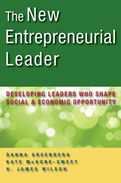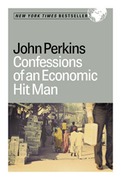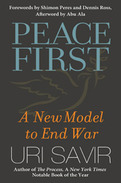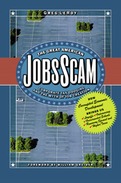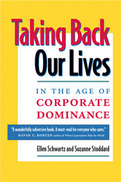Describes three principles that form the basis for entrepreneurial leadership, a new leadership approach for today's world
- Describes three principles that form the basis for entrepreneurial leadership, a new leadership approach better suited to the realities of today's complex and changing world
- Offers management educators concrete examples of how to incorporate these principles into their curricula
- Based on two years of research at Babson College, one of the top business schools in the world
In years past, the keywords for leaders were confidence, single-minded purpose, and strategic planning. But today's vastly complex, globalized, and fast-evolving world requires a different kind of leadership. This game-changing book details a new approach-entrepreneurial leadership-developed at Babson College, the number-one school for entrepreneurship in the world.
Entrepreneurial leadership is inspired by, but is separate from, entrepreneurship. It is a leadership approach that can be applied in any organizational situation, not just start-ups. Based on two years of extensive research, it embraces three principles that add up to nothing less than a fundamentally new worldview of business and a new logic of decision making.
The authors discovered that rapid change and increasing uncertainty require leaders to be "cognitively ambidextrous," able to shift between traditional "prediction logic" (choosing actions based on analysis of known trends) and "creation logic" (taking action despite considerable unknowns). Guiding this different way of thinking and acting is a different worldview of business and society, where simultaneous creation of social, environmental, and economic value is the order of the day. Entrepreneurial leaders also leverage their understanding of themselves and their social context to guide effective action.
Danna Greenberg, Kate McKone-Sweet, and H. James Wilson, along with some of the top faculty at Babson, examine the three facets of this new model in detail. Each chapter offers concrete examples of how educators across all disciplines are integrating these ideas into their courses-and even their entire curricula. The New Entrepreneurial Leader lays out a comprehensive new paradigm for reinventing management education in order to mold leaders who will shape social and economic opportunity.
- This product page is for the original 2003 hardcover bestseller. Please also see The New Confessions of an Economic Hit Man , published in January 2015
- Find out more about this important book and the worldwide movement it has spawned at www.economichitman.com
- A New York Times bestseller!
- Read what people are saying about this book and join the conversation--visit our Confessions blog today
- Read a transcript of John Perkins' recent interview with Amy Goodman on Democracy Now!
- Read David Korten's review on www.dragonflymedia.com
- An extraordinary, real-life tale of international intrigue and corruption
- Reveals the hidden mechanics of imperial control behind such major international events as the fall of the Shah, the death of Panamanian president Omar Torrijos, and the invasions of Panama and Iraq, as well as providing an inside view of the corrupt U.S.-Saudi Arabian relationship
- One man's personal journey from eager servant of empire to impassioned advocate for the rights of oppressed people
In his controversial book, John Perkins tells the gripping tale of the years he spent working for an international consulting firm where his job was to convince underdeveloped countries to accept enormous loans, much bigger than they really needed, for infrastructure development--and to make sure that the development projects were contracted to U. S. multinationals. Once these countries were saddled with huge debts, the American government and the international aid agencies allied with it were able, by dictating repayment terms, to essentially control their economies. It was not unlike the way a loan shark operates--and Perkins and his colleagues didn't shun this kind of unsavory association. They referred to themselves as "economic hit men."
This is a story of international political intrigue at the highest levels. For over a decade Perkins traveled all over the world--Indonesia, Panama, Ecuador, Columbia, Saudi Arabia, Iran--and worked with men like Panamanian president Omar Torrijos, who became a personal friend. He helped implement a secret scheme that funneled billions of Saudi petrodollars back into the U. S. economy, and that further cemented the intimate relationship between the Islamic fundamentalist House of Saud and a succession of American administrations. Perkins' story illuminates just how far economic hit men were willing to go, and unveils the real causes of some of the most dramatic developments in recent history, such as the fall of the Shah of Iran and the invasions of Panama and Iraq. Confessions of an Economic Hit Man, which many people urged Perkins not to write, is a blistering attack on a little-known phenomenon that has had dire consequences for both the lesser-developed countries and for American democracy.
- This product page is for the original 2003 hardcover bestseller. Please also see The New Confessions of an Economic Hit Man , published in January 2015
- Find out more about this important book and the worldwide movement it has spawned at www.economichitman.com
- A New York Times bestseller!
- Read what people are saying about this book and join the conversation--visit our Confessions blog today
- Read a transcript of John Perkins' recent interview with Amy Goodman on Democracy Now!
- Read David Korten's review on www.dragonflymedia.com
- An extraordinary, real-life tale of international intrigue and corruption
- Reveals the hidden mechanics of imperial control behind such major international events as the fall of the Shah, the death of Panamanian president Omar Torrijos, and the invasions of Panama and Iraq, as well as providing an inside view of the corrupt U.S.-Saudi Arabian relationship
- One man's personal journey from eager servant of empire to impassioned advocate for the rights of oppressed people
2008
Uri Savir has an ambitious, indispensable goal: to bring peacemaking into the 21st century. “Little in today’s world,” writes Savir, “is more progressive than modern warfare. Yet little is more archaic than peacemaking.” We remain trapped in a centuries-old mindset, with leaders bargaining warily for concessions and signing treaties that collapse because no one on the ground has any real stake in them.
Drawing on his experiences negotiating the Oslo Peace Accords as well as on trenchant examples from Ethiopia, Eritrea, Rwanda, Sierra Leone, Afghanistan, India, Pakistan, Northern Ireland, and the former Yugoslavia, Savir argues that an enduring peace is built from the bottom up, not from the top down. He describes a new model based on establishing and nurturing mutually beneficial forms of cooperation beginning on the local level, city-to-city and organization-to-organization.
This process of “glocalization”—involving local actors in global issues—is the first step toward constructing a peace ecology: a comprehensive transnational culture dedicated to breaking down the psychological and social barriers between former enemies. These efforts are furthered through the establishment of joint ventures that give each side a tangible stake in maintaining peace. Diplomacy still has a role, but it must reject maneuvering for gain and instead emphasize the advantages both sides will gain with the cultivation of lasting peace.
Throughout, Savir provides concrete examples of how these concepts have been put into practice. And he ends with a detailed vision of how this model could bring an enduring peace in one of the world’s most war-torn areas: the Mediterranean Basin. Peace First offers a pragmatic yet revolutionary new approach that promises to end our most intractable conflicts.
The authors use hard-hitting examples and illuminating personal vignettes about confronting fear, anger, death, family problems, and the stultifying effects of staying in the "comfort zone." They detail over 75 steps for personal and societal actions-some quick and immediate, others in-depth and long term-for retaking control of our lives. The authors include provocative questions for reflection that shock, prod, and jump-start the reader into thinking about what matters most to them.
Deeply moving, outrageous, encouraging, compelling, and inspiring, Taking Back Our Lives in the Age of Corporate Dominance blends unrelenting candor with the comfort of real-life stories of hope-and ultimately shows us that choice is the most important tool we have for reviving our lives and our world.
- Reveals the profound impact of the global corporate economy on our daily lives
- Details 75 immediate and long-term Action Steps for empowering ourselves both individually and as a society
- Offers specific tips, ideas, and resources on how to pare down our lives and open up our time
- Provides questions for reflection that help readers to think in new ways about what matters most to them
2007
- Reveals the severe--and surprising--limits on free speech in the American workplace
- Includes vivid examples illustrating just how restricted workplace speech has become
- Suggests ways to expand employee rights while protecting employers' legitimate concerns
- Learn more at www.SpeechlessTheBook.com


